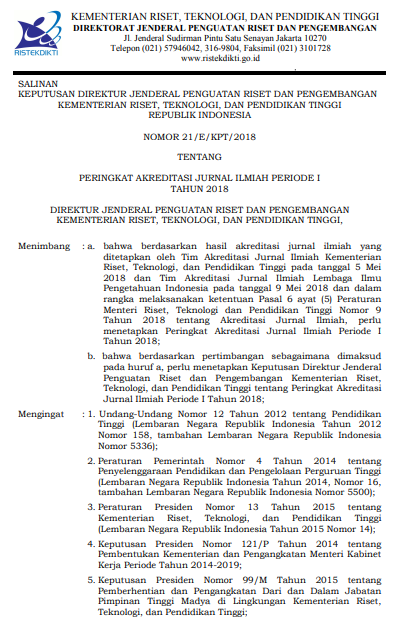Jurnal Dinamika Hukum since Vol 23 No 4 (2024) has moved the website to https://jos.unsoed.ac.id/index.php/jdh. All manuscript submissions will only be processed through the website.

Language
User
Information
Law, Goverment, Criminal Law, International Law, Restorative Justice, Adat Recht, Bank, Human Rights, Land Use, Coastal Zone, Development Activities, Prevention, Social Conflict, Genocide, Alternative Dispute Resolution, Procedural Law, Islamic Law, Syari'ah, Legal Studies, Authority, Ulayat Right, Legal Protection, Constitutional, Supervision, Judicial Review, Supreme Court, Legal Policy, Legal Reform, Promotion of Civil Servants, Protection of Wages, Broker.







